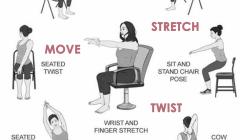Yes, but In most cases insurance plans will only cover you for new conditions that develop after your plan start date.
What is a pre-existing condition?
The majority of insurers count any condition you have had symptoms or treatment for in the past five years as pre-existing, even if it was diagnosed more than five years ago.
A pre-existing condition is anything you’ve had medical treatment for. This includes surgery, medication, consultations, or any other treatment from the NHS or privately.
Pre-existing conditions include:
| Diabetes | High Blood Pressure |
| Heart disease | Asthma |
| Osteoarthritis | Strokes |
| Cancer | Back pain that requires surgery |
| Skin conditions like eczema, acne and psoriasis | Glaucoma |
Will health insurance cover pre-existing conditions?
In general, insurers will not cover them. However, in some circumstances, if the insurer believes it is no longer likely the condition will return then they may cover a pre-existing condition. This would be considered case by case.
What cover can I get?
You can still take out health insurance if you have existing conditions, but many insurers do not pay out to treat the pre-existing condition. It would be noted as an ‘exclusion’ in the underwriting (more on that below). An exclusion is a medical service or item that is not covered and your health insurance will not pay for.
Insurers cover eligible acute conditions – in other words, diseases, illnesses or injuries that happen after your plan has started, and that are likely to respond quickly to treatment. While they don’t cover long-term chronic conditions, whether they start before or after you take out cover, they can cover you when you first become ill.
Many policies exclude chronic conditions as they need ongoing and regular treatment to help you manage them rather than short term treatment to cure them.
Can I be denied health insurance because of a pre-existing condition?
No, although you will have exclusions, you can still get cover. This may mean your premium is ‘loaded’ (increased in price) due to the high chance of it causing a claim, but you will still be able to access some kind of health insurance.
What policies are available?
The types of policy you can get if you have pre-existing conditions depend on the type of underwriting used by the insurer. Underwriting is the process whereby applicants are classified according to their degrees of insurability so that the appropriate premium may be charged and the terms offered may be reviewed.
Full medical cover underwriting gives you a definitive answer if your pre-existing condition is covered or not. You will be asked to provide extensive details of your medical history and usually includes giving the insurer permission to access your medical records or contact your GP. From this information, they can assess how much of a ‘risk’ you are for claiming and if they’re willing to cover any of your pre-existing conditions. Your premium will be calculated from this information.
Moratorium underwriting does not require you to give detailed medical information when you apply. if you make a claim, your insurer will look into your medical history to decide if they can pay for your treatment.
They will not cover any conditions that you had, or were aware of, in the five years before you take out cover. But they can start to cover these conditions if you don’t have treatment, medication or advice for these conditions, or any related conditions, for two consecutive years after your plan starts.
If your policy does not include pre-existing conditions and you try to claim for treatment for an illness you have had in the past five years, your insurer will reject your claim.
If you have no symptoms or treatment for your pre-existing condition during those two years, your policy can then start covering the condition.
For example, if you had a knee injury and stopped having treatment three years ago, your policy would not pay out for further treatment for it for two years. After two years it could cover knee injuries again as long as you have had no treatment, medication or check-ups in that time.
Other exclusions applied to health insurance policies are; Dental work, mental health treatment, cosmetic surgery, eyecare and pregnancy. Although most of the leading insurers do offer these to be covered via an ‘add on’ option.



























